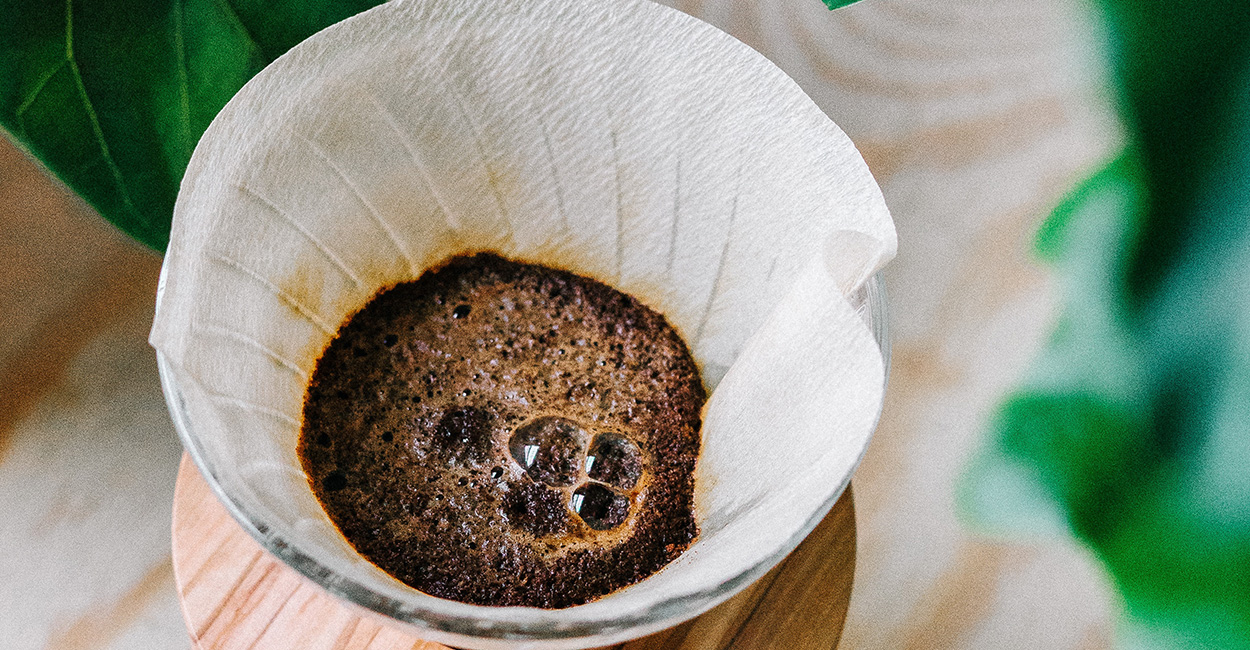It’s safe to say that we here at SlackTide Coffee Roasters are not typically found drinking decaf. However, there are certainly moments when it is necessary, and that does not mean quality and taste should be compromised! Let’s talk a bit about decaffeinating coffee and the Sugar Cane Process in particular.
As you know, the chemical caffeine is naturally found in the coffee bean, like in cocoa beans and in certain teas. To decaffeinate coffee, the caffeine must be physically removed from the beans. Caffeine is water soluble, so this is done in various methods of soaking coffee beans in water and a solvent that will separate the caffeine from the beans. The most difficult challenge is trying to remove the caffeine while preserving the rich, natural flavors of the coffee itself. Traditional decaffeinating processes used the water solvent method with the addition of heat or pressure. Adding too much heat or pressure forces the beans to swell to a great extent and may radically disrupt a green bean’s cellular structure, which ultimately degrades the final taste.
The Sugar Cane Process, which originates in Colombia where sugar cane grows in abundance, avoids disrupting the bean’s cellular structure and even enhances sweetness of the final cup! To begin, fermented molasses derived from sugar cane is used to make ethanol. The alcohol ethanol is mixed with a natural acetic acid, to create the solvent ethyl acetate (E.A.). E.A. is also prominent in wine, beer, fruit, and vegetables. The coffee beans are soaked in water, which increases the bean moisture content and releases caffeine from the structure. After soaking for a sufficient period of time, the beans undergo an E.A. wash, which dissolves the caffeine. Finally, the beans are cleaned with water again, exposed to steam briefly to clean the inner portions of the bean, and then dried to the original moisture level. This process removes roughly 97% of the caffeine content. Due to the fermented molasses from the sugar cane, the Sugar Cane Process creates beans with a pleasant, clean, and sweet flavor!
SlackTide Coffee Roasters is excited to announce a new coffee from Valle del Cauca, Colombia, which was decaffeinated through the Sugar Cane Process! Located in a biological Conservation Corridor, Valle del Cauca lies between the National Park of Tatama and “serrania de los paraguas.” Some years ago, this region was identified by Conservation International as one of the two main conservation corridors in Colombia. Farmers in Valle del Cauca are strongly aware of the importance of the preservation of natural resources, water management and friendly environmental practices. The region is a prominent producer of both coffee and sugar cane, making it the perfect area for this natural processing method.
The Valle del Cauca Sugar Cane Processed coffee has notes of cherry, citrus, caramel, and cane sugar, and is pleasantly sweet!



Leave A Comment